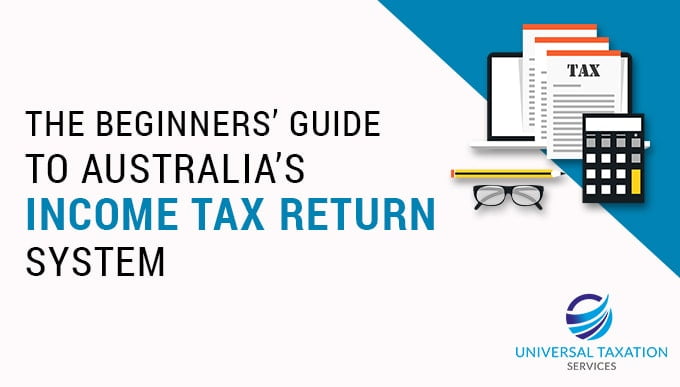Exploring the Benefits of Filing a Tax Return: Maximize Your Tax Refund This Year
Filing a Tax return is often viewed as a challenging task, yet it plays a vital role in boosting your economic standing. By carefully reporting earnings and leveraging available deductions and credit ratings, people can use the possibility for significant tax obligation refunds. Adhering to tax obligation regulations decreases the threat of fines. Understanding the subtleties of this process can expose overlooked opportunities for savings. As we explore the different facets of tax declaring, it becomes apparent that the advantages extend past mere compliance-- what approaches can you adopt to ensure you are not leaving cash on the table?
Importance of Filing an Income Tax Return
Filing a Tax return is a substantial duty for businesses and individuals alike, as it offers both conformity and monetary administration purposes. Sticking to tax legislations is important, as stopping working to file can result in considerable fines, rate of interest fees, and prospective lawful effects. By submitting a Tax return, individuals and companies show their dedication to satisfying their public obligations and add to the functioning of public services.
Moreover, filing an income tax return provides a chance for taxpayers to review their monetary scenario. It allows them to track income, costs, and overall monetary health, which can inform future budgeting and financial investment choices. For lots of, tax obligation returns are an entrance to possible reimbursements, as overpayment of taxes throughout the year can be reclaimed, providing a much-needed financial boost.
Additionally, the tax return process can promote accessibility to numerous financial items and services. Lenders typically call for income tax return when establishing credit reliability for fundings or mortgages, making it necessary for individuals and organizations looking for monetary support. In final thought, submitting an income tax return is not simply a regulatory obligation; it is a substantial step in maintaining monetary stability and exposing possible advantages.
Recognizing Tax Obligation Deductions
Tax obligation reductions are frequently ignored yet play an important function in minimizing taxed earnings and taking full advantage of prospective refunds. Understanding the various kinds of tax obligation deductions available can considerably influence your total tax obligation obligation. Deductions can be classified into 2 primary types: itemized deductions and typical deductions.
The criterion deduction is a set buck quantity that taxpayers can subtract from their income, varying based on declaring status. For numerous people, especially those without substantial itemizable costs, taking the standard reduction is useful. On the other hand, itemized reductions enable taxpayers to list eligible expenses, such as mortgage passion, clinical costs, and philanthropic payments, potentially generating a better deduction than the basic choice.
It's important to keep meticulous records of all insurance deductible costs throughout the year to assure you capture every qualified reduction. In addition, specific reductions might go through limitations or phase-outs based upon revenue degrees. Familiarizing on your own with these nuances can aid you tactically intend your finances and optimize your income tax return. By recognizing and leveraging tax obligation reductions efficiently, taxpayers can minimize their taxable income and improve their overall tax obligation refund.

Exploring Tax Credit Ratings
Maximizing your tax obligation savings includes recognizing the different kinds of tax credit scores available to you. Tax obligation credit histories straight reduce your tax obligation dollar for buck, making them extra advantageous than reductions, which only lower your gross income.
There are two key categories of tax credit scores: nonrefundable and refundable. Nonrefundable credit scores can minimize your tax obligation responsibility to no but will certainly not lead to a reimbursement if the read credit report exceeds your tax owed. Refundable credit ratings, on the other hand, can produce a refund even if you have no tax responsibility, making them specifically beneficial for lower-income taxpayers.
Usual tax obligation credit scores include the Earned Income Tax Credit (EITC), which supports reduced to moderate-income functioning family members and individuals, and the Kid Tax Credit report, which offers monetary relief for taxpayers with dependent kids. Education-related credit scores, such as the American Opportunity Credit Score and the Lifetime Knowing Debt, aid counter the costs of college.
Usual Errors to Prevent
Maneuvering the intricacies of income tax return can bring about several usual pitfalls that taxpayers must know. One significant mistake is failing to report all incomes. Also percentages from side work or freelance work have to be consisted of, as the internal revenue service obtains duplicates of all earnings statements.
One more constant mistake involves overlooking deductions or credit scores for which one is qualified. Taxpayers ought to completely look into possible deductions, such as for student loans or clinical expenditures, to avoid leaving money on the table.
In addition, mistakes in individual details, such as Social Security numbers or filing standing, can postpone processing and refunds. It is essential to verify all information before submission to guarantee accuracy.
Declaring late or overlooking to file completely can additionally result in penalties and missed chances for reimbursements. Taxpayers should be aware of due dates and strategy as necessary.
Lastly, many individuals forget to maintain in-depth records of expenditures and supporting files. Organized documents is basic for corroborating claims and facilitating any future audits. By staying clear of these common mistakes, taxpayers can simplify their filing procedure and improve their potential reimbursements.
Tips for Optimizing Your Reimbursement

Next, think about adding to pension, such as an individual retirement account. Contributions made before the tax deadline can be subtracted, potentially increasing your refund. In addition, if you are independent, make certain to make up business-related costs that can decrease your gross income.
An additional vital technique is to submit your return digitally. E-filing not just speeds up the handling time but also minimizes errors that can happen with paper entries. Validate that you pick the correct declaring condition; this can substantially impact your tax rate and eligibility for specific credit scores.
Lastly, keep precise records throughout the year. Organizing invoices and financial documents can simplify the filing procedure and help you identify possible deductions that you might otherwise miss. By taking these steps, you place yourself to get the maximum refund feasible.
Final Thought

By carefully reporting income and leveraging readily available deductions and credit reports, people can tap right into the possibility for considerable tax refunds. For numerous, tax returns are a portal to potential reimbursements, as overpayment of tax obligations throughout the year can be redeemed, using a much-needed economic increase.
Recognizing the numerous types of tax deductions readily available can significantly affect your overall tax obligation liability. Online tax return Australia. By comprehending and leveraging tax obligation deductions successfully, taxpayers can reduce their taxed income and improve their overall tax obligation refund
